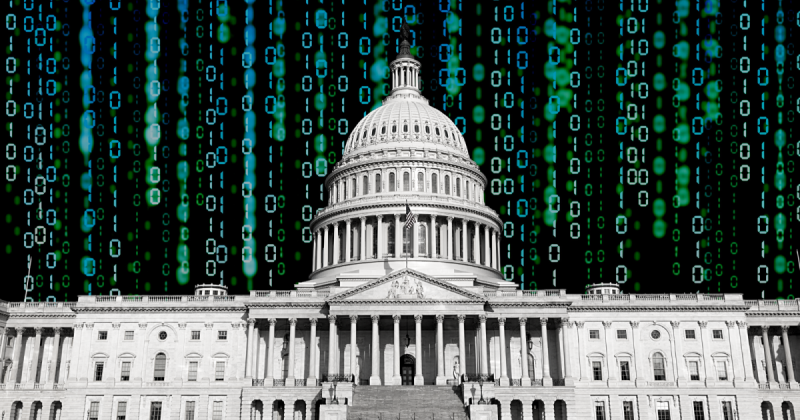FTC Investigation Into OpenAI's ChatGPT: What It Means

Table of Contents
The Scope of the FTC's Investigation
The FTC's investigation into OpenAI centers on potential violations of Section 5 of the FTC Act, which prohibits unfair or deceptive acts or practices. This broad scope allows the commission to examine various aspects of ChatGPT's operation and OpenAI's practices. Key concerns include ChatGPT's potential for disseminating misinformation and biased content, and the scrutiny of OpenAI's data collection and privacy practices.
-
Misinformation and Bias: The investigation is likely probing instances where ChatGPT generated false information, potentially harming individuals or the public. The FTC is scrutinizing the algorithms and training data to understand how these inaccuracies arise and how OpenAI is addressing them. The issue of algorithmic bias, leading to discriminatory or unfair outputs, is also under investigation. Understanding how to mitigate bias in large language models (LLMs) is a critical aspect of the investigation.
-
Data Collection and Privacy: The FTC is examining OpenAI's data security measures and how user data is collected, used, and protected. This includes analyzing the transparency of OpenAI's data practices and whether they comply with existing privacy regulations like GDPR and CCPA. Concerns about the potential misuse of user data and the lack of informed consent are central to this part of the investigation.
-
Transparency and Accountability: The investigation also assesses OpenAI's transparency regarding ChatGPT's capabilities and limitations. The FTC is interested in whether OpenAI adequately informed users about the potential risks and limitations associated with using the chatbot, including the potential for generating inaccurate or misleading information. This involves examining OpenAI's communication strategy and whether it accurately represents ChatGPT's abilities and limitations.
Potential Consequences for OpenAI
The consequences of the FTC ChatGPT investigation for OpenAI could be substantial. The FTC holds significant power to impose fines and penalties for violating its regulations. Beyond financial penalties, the commission could mandate significant changes to OpenAI's data practices and AI model development.
-
Financial Penalties: Financial penalties could severely impact OpenAI's operations and future investments. The amount of any fine would depend on the severity of the violations found.
-
Algorithmic and Data Handling Changes: The FTC might mandate changes to OpenAI's algorithms and data handling practices to improve accuracy, mitigate bias, and enhance user privacy. This could involve significant investment in retraining models and improving data security infrastructure. Such mandated changes could potentially slow down innovation and future development.
-
Increased Scrutiny: The investigation will likely lead to increased scrutiny of OpenAI's future AI projects. This could include more stringent regulatory review processes before the release of new products or services. This heightened scrutiny might require OpenAI to implement more rigorous internal checks and balances to ensure compliance. Negative publicity arising from the investigation could also damage OpenAI's reputation and investor confidence.
Implications for the Broader AI Industry
The FTC's action sets a crucial precedent for future AI regulation and oversight. It signals a growing awareness of the potential risks associated with AI technologies and the need for responsible development and deployment.
-
Industry-Wide Impact: The outcome of this investigation will directly influence how other companies develop and deploy AI. It could trigger a wave of increased self-regulation and proactive measures to address ethical concerns and comply with potential future regulations.
-
Data Privacy and Bias Mitigation: The investigation encourages other AI developers to prioritize ethical considerations, particularly concerning data privacy and bias mitigation. This could lead to industry-wide adoption of improved data privacy practices and the development of techniques for reducing bias in AI models.
-
Increased Transparency and Accountability: The FTC investigation promotes increased transparency and accountability in AI development. AI companies will likely feel pressure to be more forthcoming about their models' capabilities and limitations, and to actively address issues of bias and misinformation. The potential for new legislation focusing on AI safety and responsible development is also a significant implication.
The Future of AI Regulation
The FTC ChatGPT investigation highlights the urgent need for a comprehensive regulatory framework for AI. This framework should strike a balance between fostering innovation and mitigating the risks associated with AI technologies. International cooperation will be crucial in establishing global standards for AI governance.
-
Regulatory Models: Different regulatory models, including self-regulation and government oversight, need to be explored and debated. Finding a balance that encourages innovation while ensuring accountability is a significant challenge.
-
Stakeholder Engagement: Effective AI regulation requires significant stakeholder engagement, involving AI developers, policymakers, ethicists, and the public. This collaborative approach is essential for developing regulations that are both effective and fair.
-
Global Impact: The impact of AI regulation extends beyond national borders. International cooperation is crucial to develop consistent and effective standards that address the global challenges posed by AI.
Conclusion
The FTC investigation into OpenAI's ChatGPT is a pivotal moment for the AI industry. The outcome will significantly impact OpenAI and shape the future of AI regulation globally. This underscores the critical need for responsible AI development and the prioritization of ethical considerations alongside technological advancements. Staying informed about developments in the FTC ChatGPT investigation is crucial for navigating the evolving landscape of AI regulation. Understanding the intricacies of this case will help prepare businesses and individuals for the future of AI and its regulatory environment.

Featured Posts
-
 Red Sox Injury Update Crawford Bello Abreu And Rafaelas Status
Apr 28, 2025
Red Sox Injury Update Crawford Bello Abreu And Rafaelas Status
Apr 28, 2025 -
 Red Sox Lineup Adjustment Coras Game 1 Strategy
Apr 28, 2025
Red Sox Lineup Adjustment Coras Game 1 Strategy
Apr 28, 2025 -
 Abwzby Mntda Alabtkar Fy Mjal Tb Alhyat Alshyt Almdydt Yjme Rwad Alqtae
Apr 28, 2025
Abwzby Mntda Alabtkar Fy Mjal Tb Alhyat Alshyt Almdydt Yjme Rwad Alqtae
Apr 28, 2025 -
 Addressing Investor Concerns Bof As Take On Current Stock Market Valuations
Apr 28, 2025
Addressing Investor Concerns Bof As Take On Current Stock Market Valuations
Apr 28, 2025 -
 The Espn Teams Tribute To Cassidy Hubbarth
Apr 28, 2025
The Espn Teams Tribute To Cassidy Hubbarth
Apr 28, 2025
